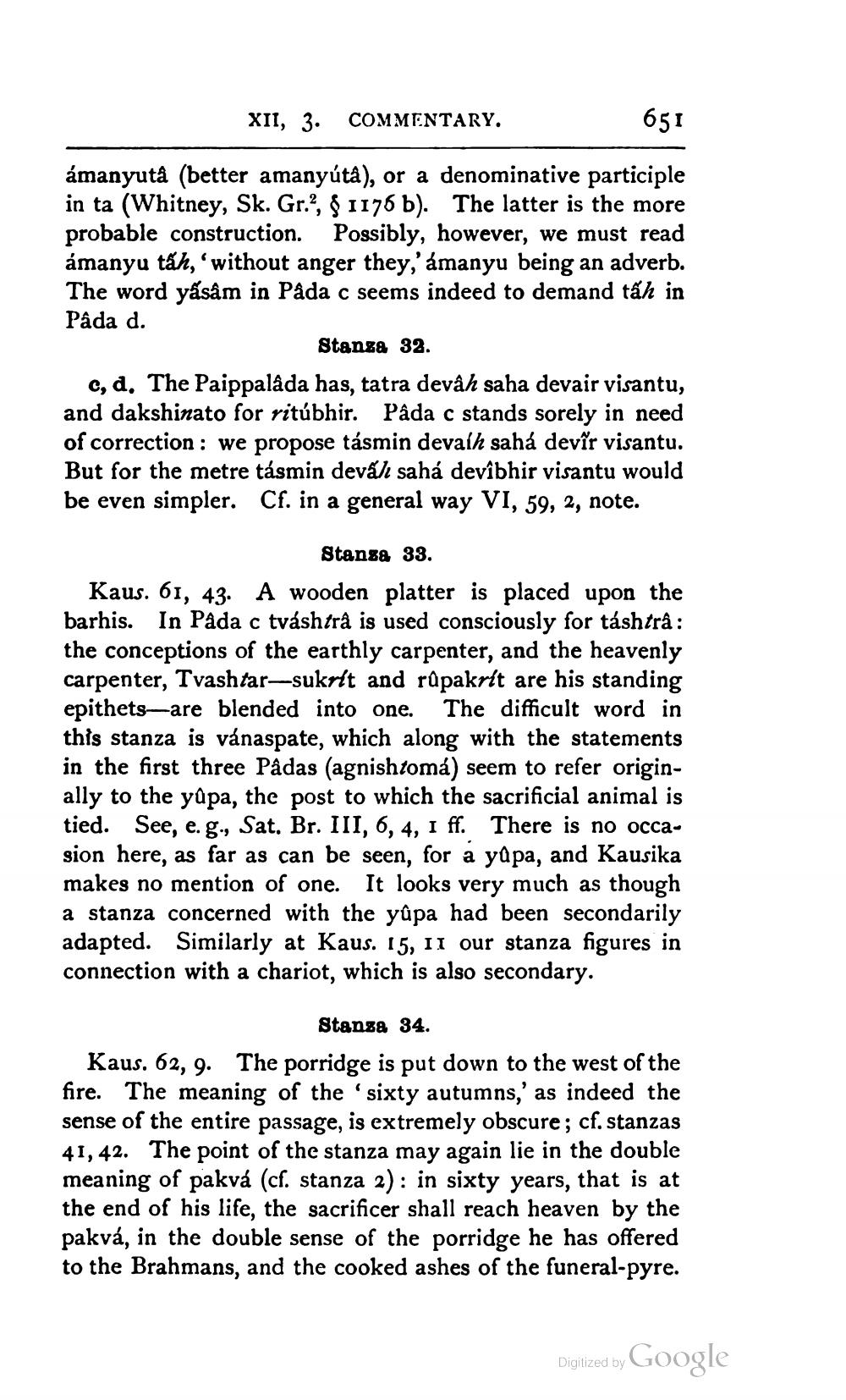________________
XII, 3. COMMENTARY.
651
ámanyutå (better amanyútà), or a denominative participle in ta (Whitney, Sk. Gr.?, § 1170 b). The latter is the more probable construction. Possibly, however, we must read ámanyu táh, without anger they,'amanyu being an adverb. The word yasam in Påda c seems indeed to demand tah in Pâda d.
Stanga 32. c, d, The Paippalåda has, tatra devâh saha devair visantu, and dakshinato for ritúbhir. Pâda c stands sorely in need of correction : we propose tásmin devaih sahá devír visantu. But for the metre tásmin devah sahá devibhir visantu would be even simpler. Cf. in a general way VI, 59, 2, note.
Stansa 33. Kaus. 61, 43. A wooden platter is placed upon the barhis. In Pada c tváshtrà is used consciously for táshtra : the conceptions of the earthly carpenter, and the heavenly carpenter, Tvashtar-sukrit and rûpakrit are his standing epithets—are blended into one. The difficult word in this stanza is vánaspate, which along with the statements in the first three Pâdas (agnishtomá) seem to refer originally to the yūpa, the post to which the sacrificial animal is tied. See, e.g., Sat. Br. III, 6, 4, 1 ff. There is no occasion here, as far as can be seen, for a yūpa, and Kausika makes no mention of one. It looks very much as though a stanza concerned with the yûpa had been secondarily adapted. Similarly at Kaus. 15, II our stanza figures in connection with a chariot, which is also secondary.
Stansa 34. Kaus. 62, 9. The porridge is put down to the west of the fire. The meaning of the sixty autumns,' as indeed the sense of the entire passage, is extremely obscure; cf. stanzas 41, 42. The point of the stanza may again lie in the double meaning of pakvá (cf. stanza 2): in sixty years, that is at the end of his life, the sacrificer shall reach heaven by the pakvá, in the double sense of the porridge he has offered to the Brahmans, and the cooked ashes of the funeral-pyre.
Digitized by Google




